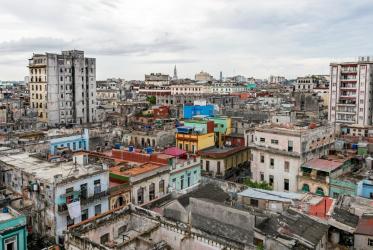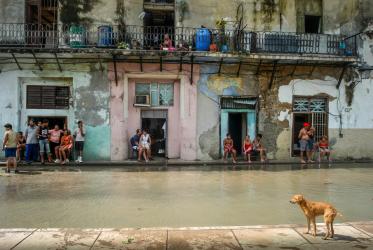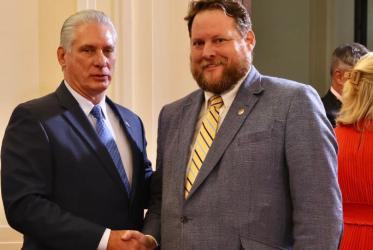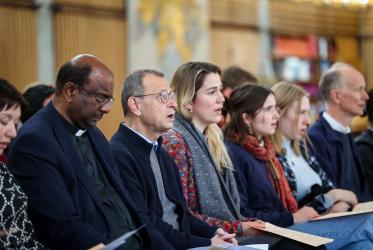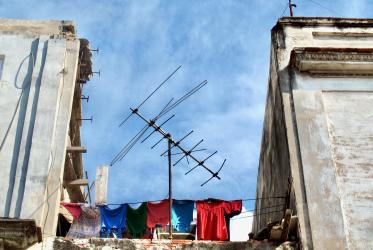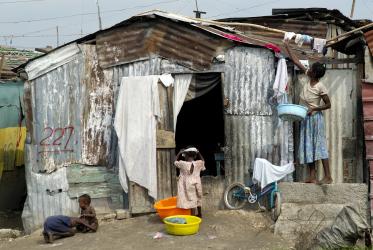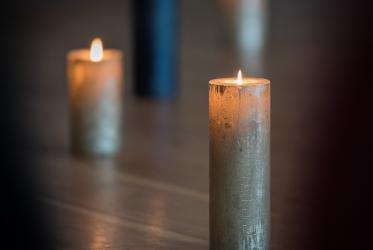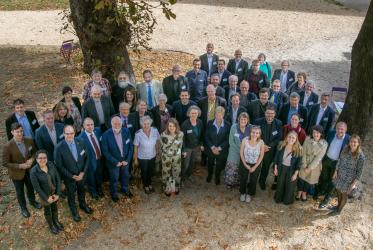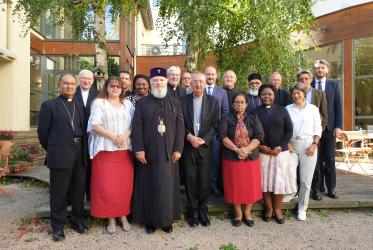Displaying 1 - 20 of 64
28 March 2024
Christ’s Love (Re)moves Borders – GETI 2022 in images
13 September 2022
WCC prays for Haiti in wake of 7.2-magnitude earthquake
16 August 2021
Churches should use their voice on climate change
26 February 2020
WCC well-represented in Religions for Peace leadership
07 October 2019
Workshop in Jamaica focuses on human rights
16 May 2019

